MercoPress. South Atlantic News Agency
Health & Science
-
Saturday, July 21st 2007 - 21:00 UTC
'Latin America water under threat' W. B. research shows
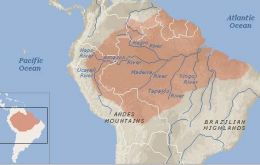
Global warming is drying up mountain lakes and wetlands in the Andes and threatening water supplies to major South American cities such as La Paz, Bogotá and Quito, World Bank research shows.
-
Monday, July 16th 2007 - 21:00 UTC
Human variant of BSE kills teenage patient in Portugal
Portuguese health authorities confirmed this week the first fatal case of Creutzfeld-Jacob disease the human variant of Bovine Spongiform Encephalitis, BSE, or better know as mad cow.
-
Monday, July 16th 2007 - 21:00 UTC
Chile announces outbreak of Newcastle disease in sea birds
Chile's Agriculture and Livestock Service confirmed the presence of the lethal Newcastle disease in the carcasses of eight sea birds. The discovery occurred 180 miles south of Santiago last June 29 but was only announced Monday.
-
Thursday, July 5th 2007 - 21:00 UTC
Massive aid in basic services for Rio do Janeiro slums
The Brazilian government will spend 1.7 billion dollars to bring running water and other basic services to Rio de Janeiro slums to counter drug gangs that control many of the poor areas, announced President Luiz Inácio Lula da Silva.
-
Sunday, July 1st 2007 - 21:00 UTC
England joins rest of UK in becoming a smokefree zone

A ban on smoking in public places has come into effect in England, spelling an end to drinkers having a cigarette with their pint in pubs, bars and clubs.
-
Friday, June 29th 2007 - 21:00 UTC
Severe air pollution plagues Chilean cities
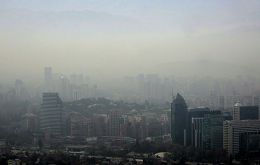
Cold winter conditions and the lack of wind are exacerbating air-quality problems in Santiago and Chillán; pollution in both cities has reached extreme levels.
-
Friday, June 29th 2007 - 21:00 UTC
US import ban on five types of Chinese seafood
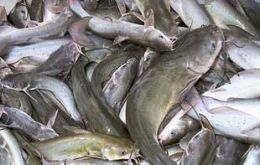
United States announced it will halt imports of five types of farmed Chinese seafood, claiming they contain antibiotics that are not allowed in North America
-
Wednesday, June 13th 2007 - 21:00 UTC
WHO report on the impact of environmental factors on health
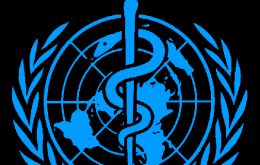
The World Health Organization (WHO) released this week the first ever country-by-country analysis of the impact environmental factors have on health. The data show huge inequalities but also demonstrate that in every country, people's health could be improved by reducing environmental risks including pollution, hazards in the work environment, UV radiation, noise, agricultural risks, climate and ecosystem change.
-
Friday, June 8th 2007 - 21:00 UTC
UN links industrial trans fats in food supplies with heart attacks

The Pan American Health Organization, a regional arm of the United Nations World Health Organization, called today for the elimination of industrial trans fats from food supplies throughout the Americas in order to prevent heart attacks.
-
Friday, June 8th 2007 - 21:00 UTC
G8 leaders agree to substantial cut in greenhouse emissions
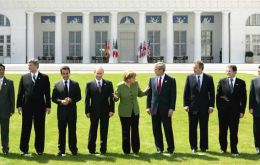
Leaders of the leading industrialized nations G8 meeting in Germany agreed to seek “substantial” cuts in CO2 emissions in an effort to tackle climate change. German Chancellor Angela Merkel said the G8 would negotiate within a United Nations framework to seek a replacement for the Kyoto Protocol by the end of 2009.